Anne Lorenz
In search of the perfectly unexceptional
19.1. —
11.3.2007
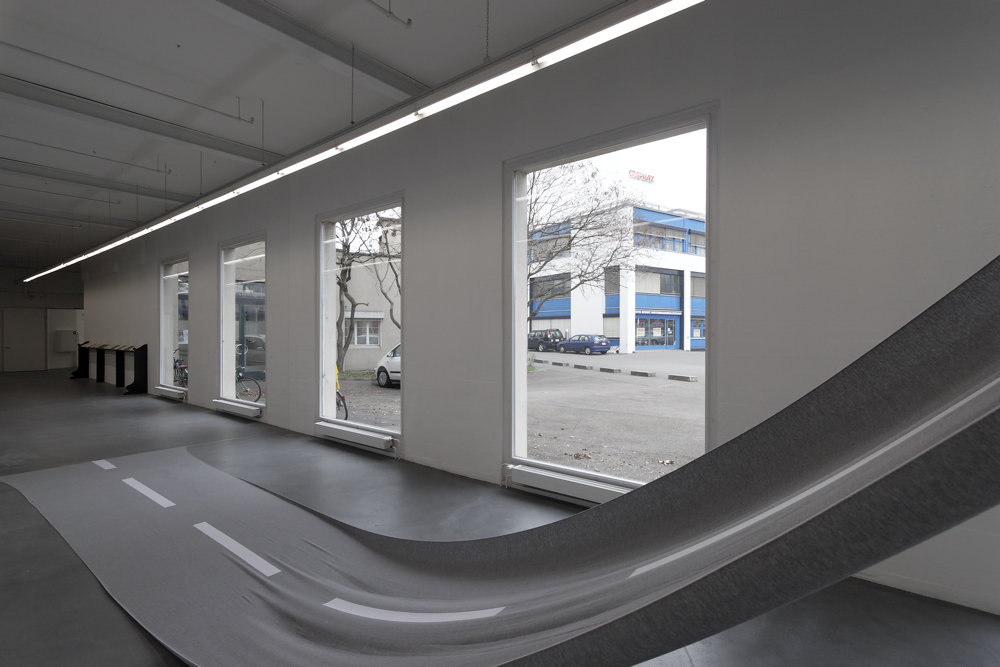
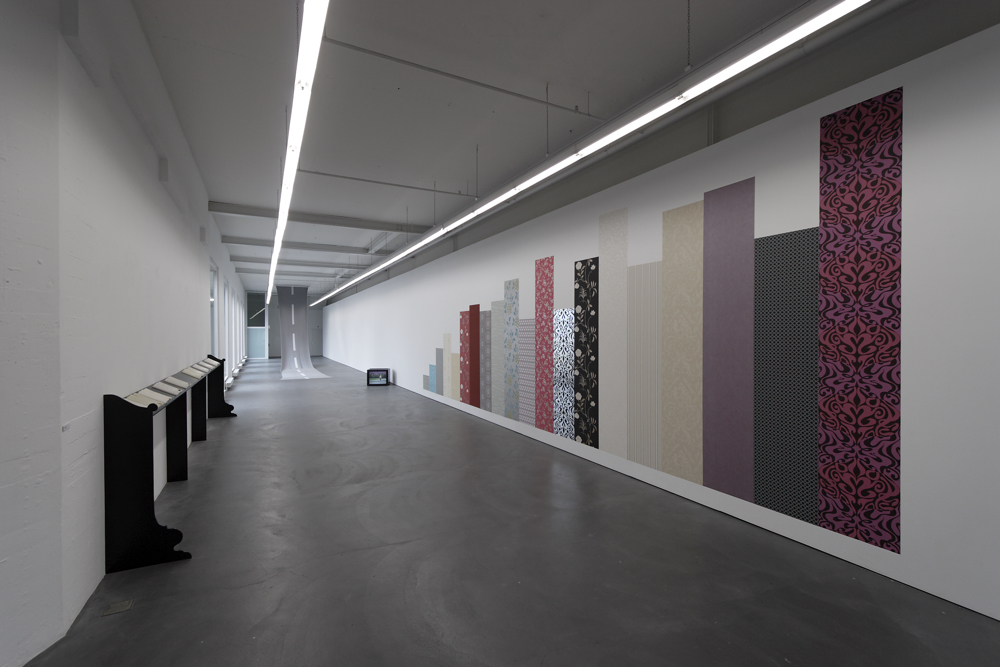
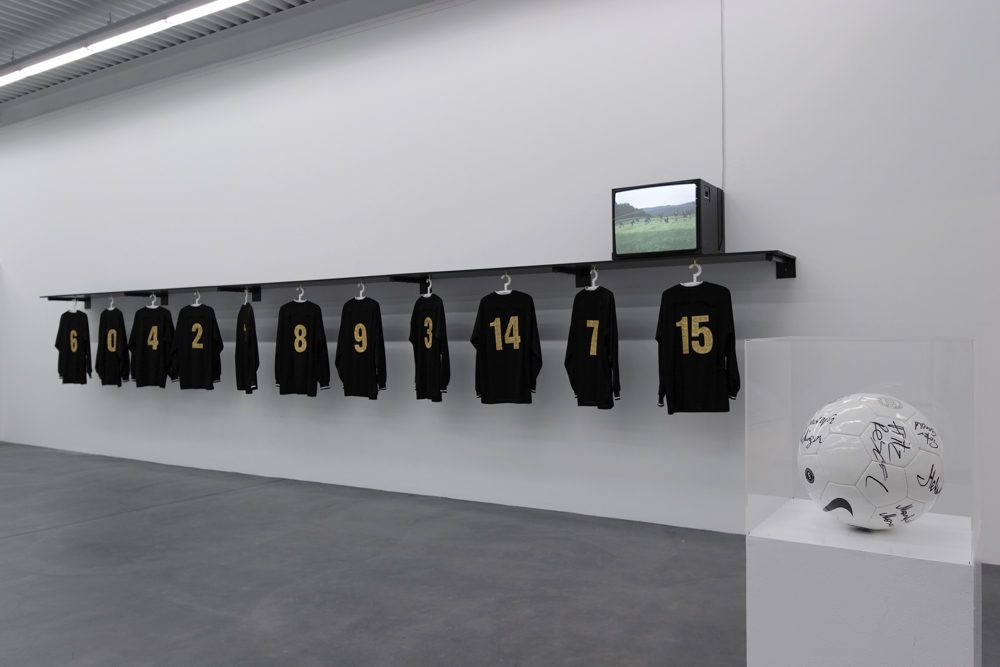
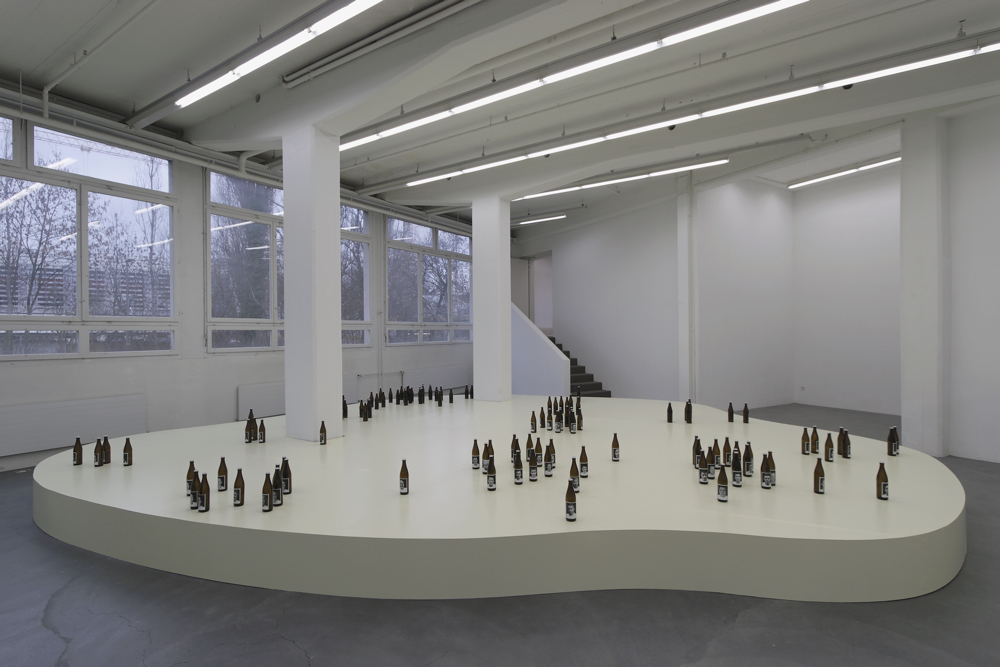
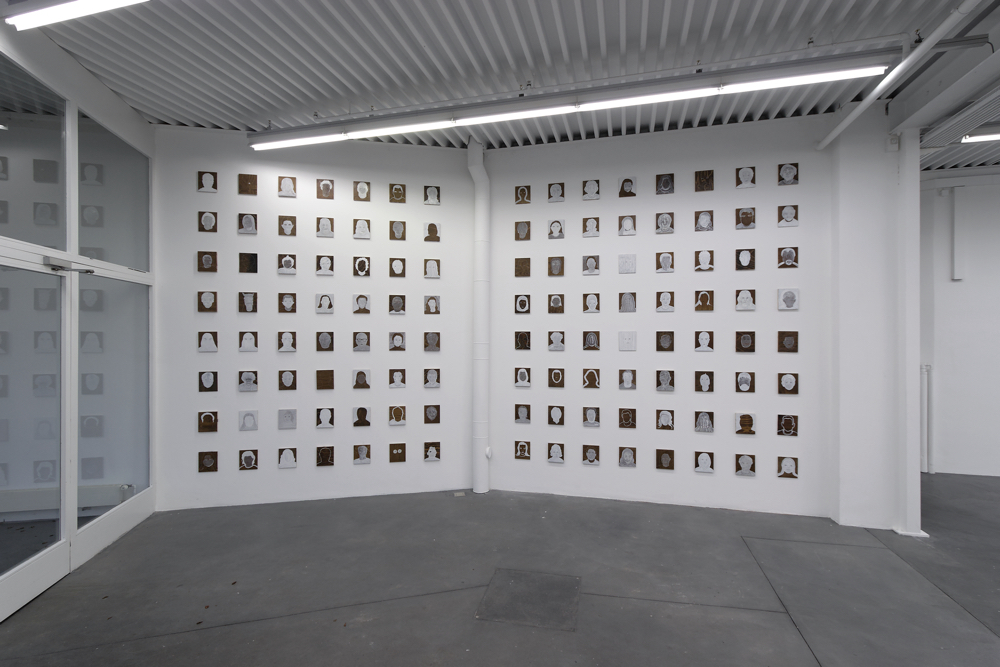
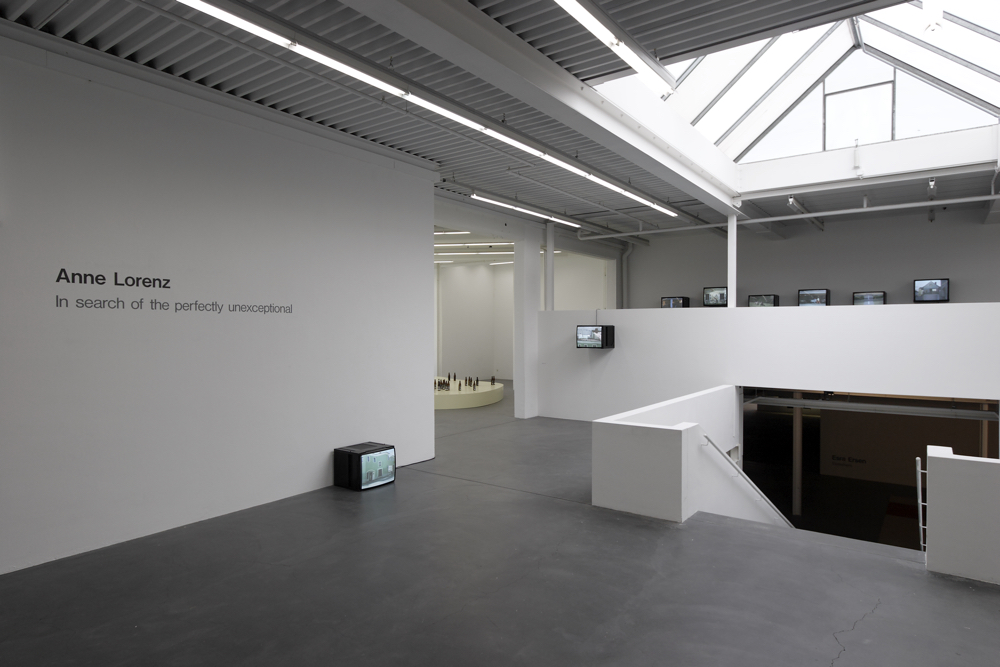
Kunsthaus Baselland shows the first institutional solo show devoted to Anne Lorenz. The artist, who gained popularity with her performances, choreographies, and public interventions, presents the objects she already used for the Festival of Regions in Upper Austria in this large-scale exhibition. Lorenz is mainly interested in how best to strive for perfection in the field of the perfectly unexceptional.
For her projects entitled Auf dem Heimweg (On the Way Home) and Patterns, which she developed for the Festival of Regions, she delved into the habits, everyday lives, and hobbies of 140 inhabitants of the town of Aigen for an entire year. Her videotaped interventions and choreographies as well as the objects resulting from her projects are highlighted at Kunsthaus Baselland in the format of a comprehensive exhibition. One of the interactions on display emerged from a cooperation with four gold embroideresses who decorated the numbers on soccer shirts by applying their signature embroidering style. The members of the local soccer club wore these shirts in a dance choreographed by the artist. While, in some aspects, this dance was reminiscent of routine warm-up exercises before kickoff, it differed from them in others. Anne Lorenz based her choreography on her observations of day-to-day life and identified elements in these recurrent processes which — interspersed between and complemented by short dance routines — turn what was originally a dull and monotonous experience into something quite exceptional.
In another videotaped interaction the artist takes a close look at mothers’ habits. Lorenz describes this project as follows: “Many repetitions make our habits perfect in a way. You can go through certain motions without giving any thought to them, without expending any energy. The longer we practice these habits, the more smoothly they proceed. Just think of going grocery shopping with little children: The mother deftly executes every single movement, she knows exactly how she should put her kid into the shopping cart, how long she is allowed to stand in front of the shelf to make sure that she can leave the supermarket without her kid starting to scream or throwing a temper tantrum. I have captured these motions in video loops in precisely determined and rehearsed choreographies. The transitions from one motion to the next are sometimes so smooth that the viewer actually assumes that the person he or she sees does something for the third or fourth time.”
Anne Lorenz’s next interaction and choreography dealt with a young girl with long hair. Modeled on the German fairytale character of Rapunzel, three girls are shown in front of open windows, indulging themselves in the act of combing their copious hair, throwing it back seductively and lying sprawled on the floor. Another part of the project revolved around the question of what hobbies and pastimes the inhabitants actually have. Many of them spend a lot of time pursuing their hobbies, and often these take on greater importance than their jobs. In taking stock of people’s different attitudes, Lorenz contrasted art-making with hobbies. In her exhibition Anne Lorenz pays particular attention to her craft — she diligently painted portraits of all the participants, for example. This almost obsessive activity can be viewed as a tribute to the unexceptional and the degree of perfection achieved through repetition.
Text from Sabine Schaschl